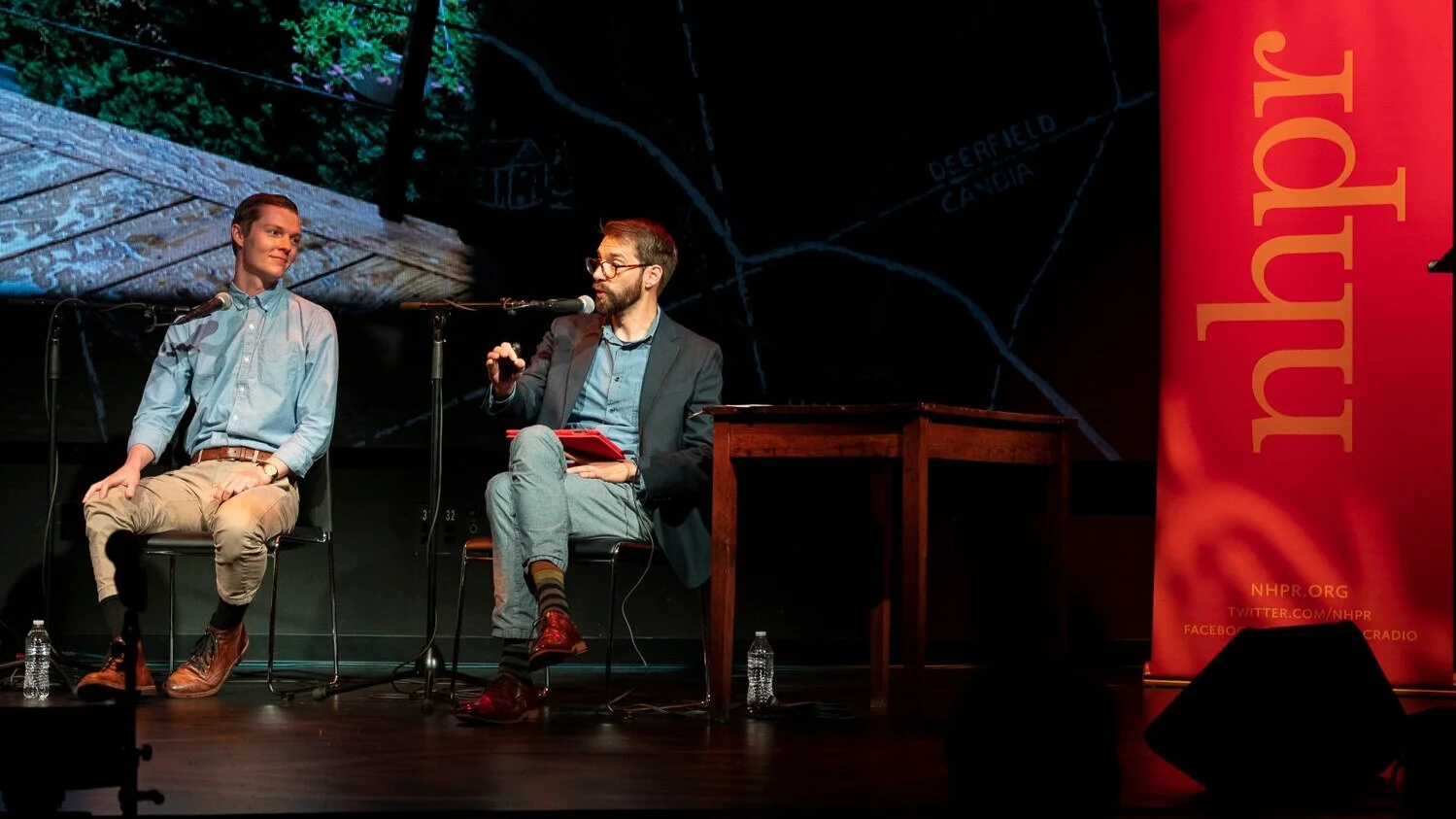Expanding Minds
Covering complex issues that might not otherwise receive focused attention is a goal that drives our news and content teams at NHPR - whether this is accomplished through a series of news reports or through the multiple episodes of a podcast. At NHPR, our reporters and producers dive deep into important topics and explore them in the detail needed to expand minds.
Adequate: How a State Values Public Education
Corey Boyd spoke to NHPR about her struggle to keep her community from closing the school her two kids attend in Dublin. Photo by Sarah Gibson.
More than 20 years ago, the landmark Claremont case stated that New Hampshire must provide funding for schools that is “constitutionally adequate.” Reporter Sarah Gibson, who joined NHPR in August 2018 through the Campaign for Innovation’s initiative to increase local reporting, set out to determine how the state of New Hampshire values public education.
Her series Adequate aired weekly from March to May 2019. Her ongoing reports continue to explore the current state of the debate over education funding in New Hampshire, with a focus on the real-world impacts on local school districts, students, and educators.
Supervision: one man’s life on parole
Josh Lavenets looks out from Strafford County Courthouse after meeting with his parole officer on his first day out of prison in 2017. Lavenets' life on parole is the subject of the NHPR podcast Supervision. Photo by Emily Corwin.
On June 5, 2019, NHPR launched a four-part podcast by former NHPR reporter Emily Corwin that began with a simple question: Why do half of parolees in New Hampshire end up back behind bars within three years?
“Emily began working on the series in the spring of 2017,” said News Director Dan Barrick. “When she moved to Vermont Public Radio, we were grateful that she continued to work on this series as part of a collaborative effort between NHPR and Vermont Public Radio.”
The result is a highly personal and moving account featuring Josh Lavenets, who tries to get his life back on track after a stint in a New Hampshire prison. His surprising story sheds light on the significant challenges faced by former inmates integrating back into society.
NHPR’s Lauren Chooljian on election night, 2018. Photo by Allegra Boverman.
Launched with seed funding secured through NHPR’s Campaign for Innovation, the State of Democracy initiative encompasses news reports, podcasts, and digital tools designed to ensure New Hampshire voters are informed voters.
The State of Democracy project includes Policy and Politics Reporter Lauren Chooljian, Investigative & Data Reporter/Editor Casey McDermott, and Senior Political Reporter Josh Rogers.
In 2018-19, much of the work by the team and their colleagues focused on extensive coverage of the 2018 Midterm Elections. Their aim: to track the politicians and officials who make policy decisions, investigate the forces that drive them, and hold them accountable for the actions they take.
Senior Assistant Attorney General Jeffery Strelzin reveals the identities of three of the Bear Brook victims, who’d been unidentified for decades. A podcast listener named Becky Heath provided the key tip that led investigators to resolve this part of the Bear Brook mystery. Photo by Ali Oshinskie.
Bear Brook: the case that changed the way murders will be solved forever
NHPR reporter Jason Moon first became interested in the Bear Brook cold case murders after attending a press conference in 2015 announcing a small break in the case. He began following the story, and then was able to shift away from the day-to-day deadlines of reporting to tell the story of the four unsolved murders from the 1980s near Bear Brook State Park in Allenstown, New Hampshire - and the new investigative techniques of forensic genealogy that were used in the case.
The popularity of this true crime podcast continues to grow, having reached more than ten million downloads (as of the time of this writing) and attracting audiences at live events in New York, Boston, and Concord. Bear Brook was named to numerous “Best of 2018” lists, including lists published by The New Yorker, the Boston Globe, New York Magazine, Buzzfeed, and The Verge.




